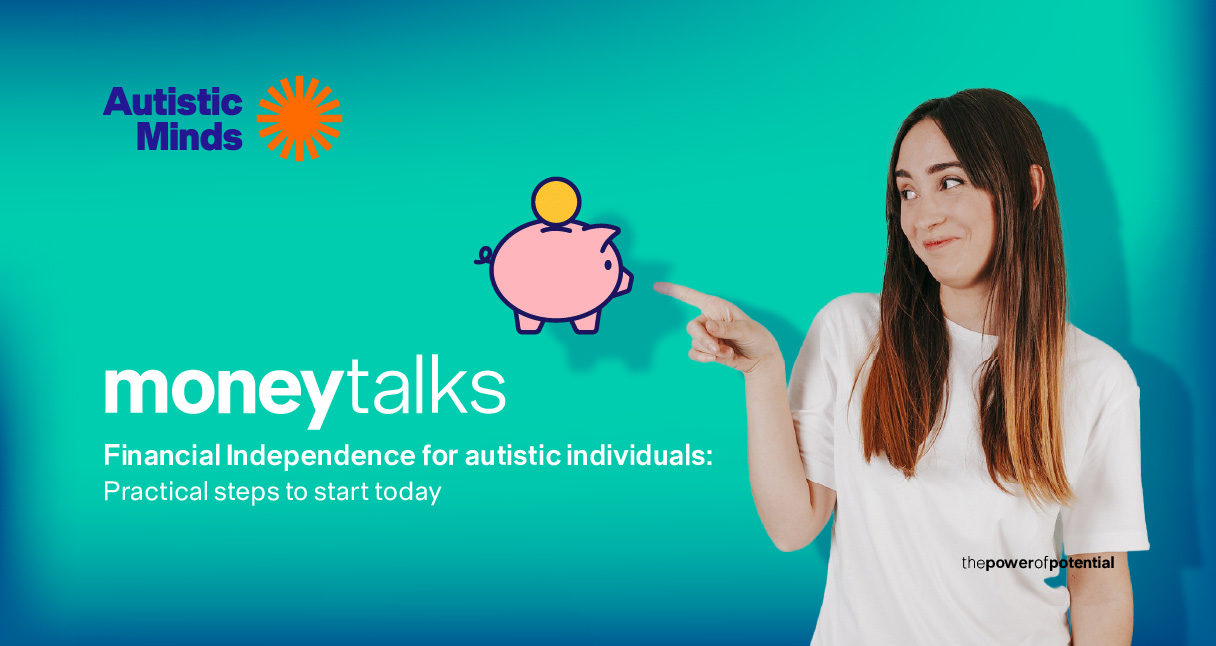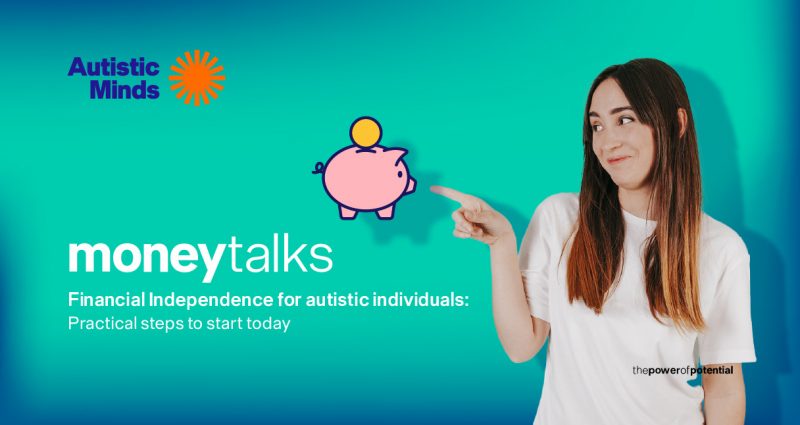Financial Independence for Autistic Individuals: Practical Steps to Start Today

Achieving financial independence can be a challenge for anyone, and for autistic individuals, there may be added obstacles like sensory sensitivities, navigating new social situations, or managing complex routines. However, with the right guidance and tools, building a secure financial foundation is absolutely possible. Here are some practical steps to help autistic individuals achieve financial independence.
Step 1: Start with a simple budget
A budget is the cornerstone of financial independence. Begin by noting your monthly income and all necessary expenses, including rent, bills, and groceries. Many budgeting tools cater to different needs, including those with straightforward, minimalist layouts that can help reduce overwhelm. Remember, a budget doesn’t have to be complicated to be effective.
Suggested Tools: Tools like Goodbudget* and YNAB* (You Need a Budget) can help you get started. Goodbudget uses a simple “envelope system,” dividing income into categories so you can easily see where your money is going each month.
Step 2: Set clear financial goals
Setting small, manageable financial goals is a great way to stay motivated. Start by identifying a realistic savings target. This could be for an emergency fund, a big purchase, or even a holiday. Having a clear goal in mind can help keep spending in check and create positive reinforcement for staying on track.
Tip: Visual reminders like goal trackers or notes in your budget app can be helpful to keep goals front and centre. For instance, a simple goal tracking app lets you break down larger goals into smaller, achievable steps.
Step 3: Build a safety net
Creating a safety net is essential for financial independence. A solid safety net includes an emergency fund and, if possible, insurance. Start by saving a small amount each month towards this fund until you have at least a few months’ worth of expenses saved up. Many find that setting up automatic transfers to a savings account helps keep savings consistent without having to actively think about it.
Saving and budgeting tools that work for autistic individuals
1. Goodbudget: For envelope budgeting
Goodbudget uses a simple “envelope system,” dividing your income into various categories (or “envelopes”) like groceries, rent, and entertainment. This visually organised approach allows you to see exactly where your money is allocated, reducing the need for complex calculations or tracking.
2. YNAB (You Need a Budget): For hands-on budgeting
YNAB encourages proactive budgeting and helps you assign every dollar to a specific purpose. The system is comprehensive, but its structured approach can help develop strong budgeting habits. YNAB also has a community of users who share helpful tips and encouragement, which can provide extra motivation and support.
3. Acorns: For automatic saving and investing
Acorns rounds up each purchase you make and saves the spare change in a separate account. Once you reach a certain amount, Acorns* automatically invests it for you, helping build savings without the need for constant monitoring. For individuals looking for a low-stress way to start saving, this can be a great tool.
Simple spreadsheet apps
For those who prefer control and customisation, apps like Google Sheets* or Microsoft Excel* can be perfect for creating a personalised budgeting system. Templates are available online to help get started, allowing you to adjust them as you see fit. Plus, if you enjoy creating your own system, using spreadsheets can be a rewarding process.
Financial literacy for autistic teens and young adults: Building strong money habits
For autistic teens and young adults, developing financial literacy skills early on is essential to achieving long-term financial stability. Here are some strategies to help build good money habits that can last a lifetime.
Start with basic concepts
Money management is a skill that can be built gradually. Start by introducing the basics, such as understanding the difference between needs and wants, the value of saving, and how to create a simple budget. Even small allowances or pocket money can serve as a helpful tool for learning these concepts in a hands-on way.
Teach the importance of saving
Teaching the habit of saving early on is one of the best ways to set young people up for success. Help them open a simple savings account where they can deposit a portion of any income or allowance they receive. Many banks have accounts specifically designed for young people with features like no minimum balance or monthly fees.
Introduce budgeting apps early
Introducing budgeting tools early on can help normalise budgeting as a part of everyday life. By using a simple tool like Goodbudget or YNAB, teens can begin to see budgeting as an empowering tool for reaching their goals rather than as a limitation.
Talk about responsible spending
Spending responsibly is a vital skill for young adults to develop. Encouraging young people to plan and save for larger purchases, rather than relying on credit, helps reinforce the value of patience and discipline. This approach can also reduce the potential of accumulating debt later on.
Provide real-life learning opportunities
Real-world experience is a valuable teacher. Encourage young adults to practice budgeting by giving them more financial responsibilities, such as handling a monthly allowance for groceries or tracking their spending for social activities. These real-life situations provide a practical understanding of managing money and help develop confidence.
In summary
Financial independence, whether for autistic teens, young adults, or adults, begins with simple, actionable steps. By creating a budget, setting clear goals, using tailored tools, and developing financial literacy skills, autistic individuals can gain control of their finances and build a solid foundation for independence. With each step taken towards managing finances, they are not just saving money but also building the confidence to lead an empowered, self-sufficient life.
* Autistic Minds is not affiliated with any of the external organisations or products mentioned. By clicking on any link you accept that Autistic Minds has no connection with or liability for any information, advice, services or products from the above 3rd parties





 01443 844764
01443 844764